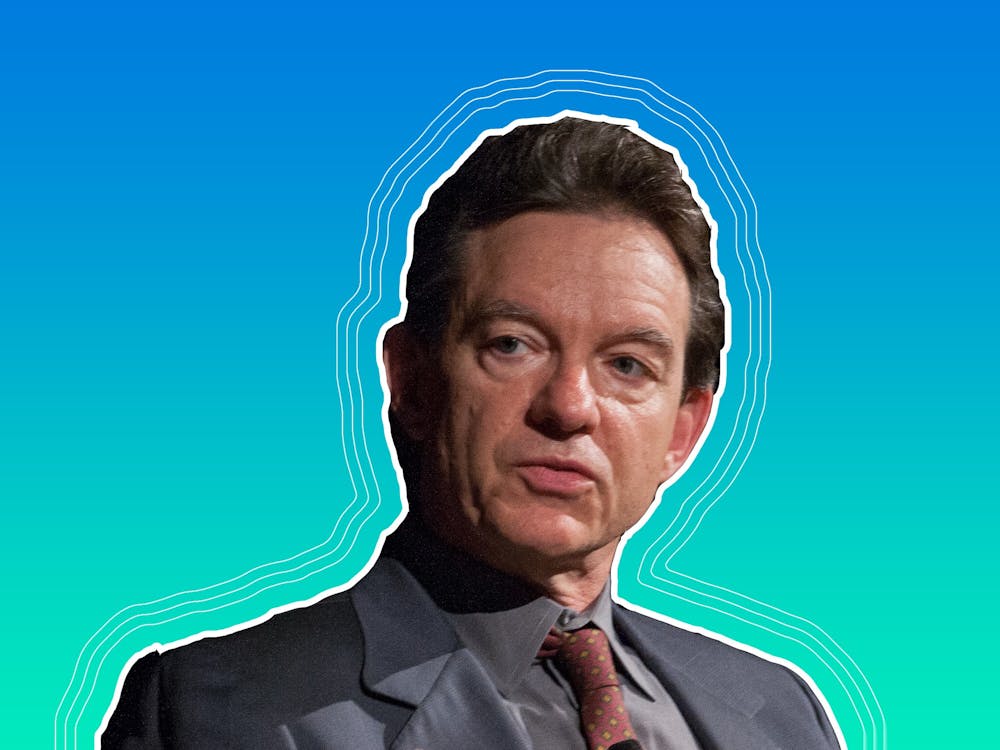Lawrence Wright’s “The End of October” is a fictional account of a virus first unleashed in Indonesia before quickly spreading around the globe. The author, who won the Pulitzer Prize in 2007 for “The Looming Tower,” a nonfiction account of 9/11, tries his hand at fiction to explore what a pandemic would look like in the twenty-first century. His timing could not have been better because the book was published in April, three weeks after Americans began sheltering in place.
Wright had a virtual book launch on April 25 with New York Times Op-Ed columnist Nicholas Kristof. His novel explores the science, politics, psychology and social aspects of a viral pandemic in the age of mass migration and air travel. If the novel had come out one year ago, it might have seemed plausible but a bit far fetched.
His book launch was followed by a buzz of publicity offshoots. NPR and CNN each invited Wright for interviews. His name was everywhere, usually followed by the word “prescient,” which left me wondering whether Wright's timing was lucky or if his research was just that good. After all, he made a name for himself writing about America’s failure to anticipate and prevent a terrorist attack. It makes sense that he would examine other possible looming threats, and the pandemic fits the bill.
In the first ten pages, the reader comes to the disappointing realization that Wright is not adept at conveying concepts in a subtle way. His opening line reads like a journalist answering the five “w” questions: “In a large auditorium in Geneva, a parliament of health officials gathered for the final afternoon session on emergency infectious diseases.” In terms of grabbing the reader by the lapels, it does not rise to the level of artistry of other opening lines in fiction: “A screaming came across the sky,” “I am a sick man… I am a spiteful man” or “Mother died today. Or, maybe, yesterday.” Of course, it is not fair to hold a non-fiction writer such as Wright to the standards of Pynchon, Dostoevsky or Camus. But Wright’s opening pages make it clear that he is using fiction in order to illustrate non-fiction points.
Wright’s protagonist makes his debut with a level of drama that feels forced. In a conference room full of experts, reports about a spate of deaths in Indonesia are met with a shrug — sort of like how the FBI disregarded the rise of Al-Qaeda. This sets the tone for the rest of the book, and Wright sends very clear signals about which characters are to be admired, disliked or pitied.
Our hero, Henry, is an archetypal character, though certainly not the only one. His doting and idealistic wife, Jill, finds the aroma of cake to be “fattening” but offers waffles “cheerily” to her bickering children while longing for her stoic husband to come home from saving the world to restore order in the household. Of course they have two soccer playing children with annoyingly altruistic tendencies when their dad calls home to tell them about his day. And what story would be complete without an evil villain and arch nemesis, Dr. Jurgen, who has no problem with unleashing a virus on mankind?
If you’re looking for an escape from our current problems, this is not the book for you. Citizens hoard food, xenophobia becomes a stand-in for scientific fact, hysteria overwhelms reason and paranoia replaces compassion. “The End of October” does do a great job of illustrating what happens when the world is faced with a virus that is far more lethal and fast-spreading than COVID-19.
Although other contemporary political issues do not come to a halt during a pandemic, as evidenced by the Black Lives Matter movement, Wright injects a heaping dose of social references. He spends many pages exploring tangents, such as the war in Ukraine and the fabrication of Hillary Clinton’s sex trafficking ring in the basement of a pizza parlor, none of which advance the narrative in any way. Despite these tangential offshoots, the book is a page-turner with a thrilling zig-zag of events. “The End of October” is a good beach read and an even better conversation starter for its timeliness. If you pick up a copy, you may find out just how life-threatening a pandemic’s second wave can be.
Get The Chronicle straight to your inbox
Sign up for our weekly newsletter. Cancel at any time.

